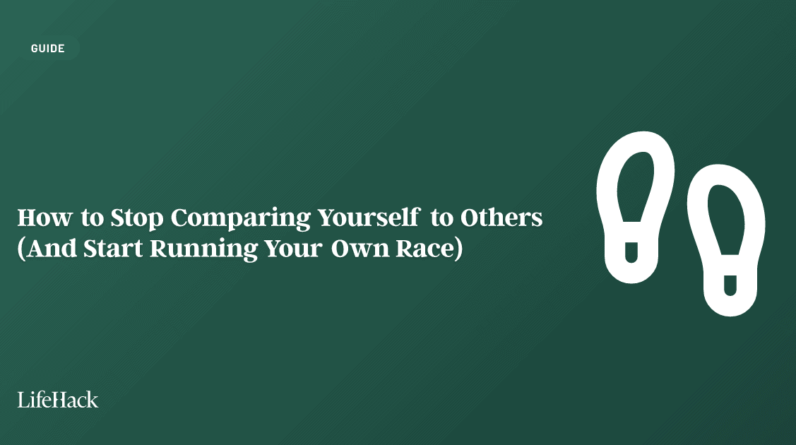
You know that little voice in your head that sometimes criticizes or judges you?
That’s what is known as the “inner critic” in psychology.
It’s that nagging voice that tells us we’re not good enough, smart enough, or capable enough.
I’ve found along my life journey that it’s important to recognize that this inner critic is not our true voice, but rather a product of our own insecurities and self-doubt. By understanding this concept, we can begin to challenge and silence our inner critic, allowing ourselves to grow and thrive.
Negative self-talk can have an awful impact on our mental well-being.
When we constantly berate ourselves and focus on our flaws, it can lead to feelings of low self-esteem and depression. It creates a cycle of negativity that is hard to break free from.
However, by becoming aware of our negative self-talk and consciously replacing it with something more positive, we can start to change the way we view ourselves.
Origins of the Inner Critic
The origins and development of the inner critic can be traced back to various factors.
It may stem from early childhood experiences where we may have been constantly criticized or judged by our parents or caregivers.
These critical messages then become internalized and form the foundation of our inner critic.
Additionally, societal pressures and expectations can also contribute to the development of the inner critic.
As we grow up, we’re bombarded with messages about how we should look, behave, and succeed, leading to an internalized sense of perfectionism and self-criticism.
The Consequences of a Harsh Inner Critic
Having a harsh inner critic can have serious consequences on our self-esteem and self-confidence.
When we constantly criticize ourselves and focus on our flaws, it becomes difficult to see our own worth and value.
Our self-esteem takes a hit, and we start to doubt our abilities and potential.
This can have a negative impact on various aspects of our lives, such as our:
- relationships
- career
- and personal growth
It becomes challenging to believe in ourselves and take risks when we’re constantly being told by our inner critic that we aren’t good enough.
A harsh inner critic can also greatly affect our mental health.
Constant self-criticism can lead to increased feelings of:
- anxiety
- depression
- stress
It creates a never-ending cycle of negative thoughts and emotions, making it difficult to find joy and happiness in life. Our self-worth becomes tied to our perceived failures and shortcomings, leading to a constant sense of dissatisfaction and unhappiness.
5 Strategies for Taming Your Inner Critic
Taming the inner critic can be a challenging task, but with the right strategies, it is possible to overcome its negative influence.
1. Cultivate self-awareness and mindfulness.
By becoming aware of our thoughts and emotions, we can start to recognize when the inner critic is speaking.
Mindfulness allows us to observe these thoughts without judgment, creating space for more constructive thinking patterns to emerge.
2. Recognizing negative self-talk.
This involves paying attention to the language we use when talking to ourselves and identifying any patterns of negative thinking.
Once we become aware of these negative thoughts, we can begin to challenge and reframe them. This process involves identifying cognitive distortions, such as black-and-white thinking or overgeneralization, and replacing them with more realistic and constructive thoughts.
Is Overgeneralization Twisting Your Mindset? How to Know for Sure
3. Staying present is also crucial.
Often, our inner critic is fueled by regrets about the past or anxieties about the future.
By practicing staying present in the moment, we can prevent our thoughts from spiraling into negativity. This can be done through mindfulness exercises such as deep breathing or grounding techniques.
4. Practicing self-compassion is an essential aspect.
By treating ourselves with kindness and understanding, we can counteract the negative self-talk and cultivate a more positive self-image.
Engaging in exercises that enhance self-compassion, such as writing self-affirmations or practicing self-care activities, can be helpful in this process.
5. Seeking support and professional help is another valuable strategy for taming the inner critic.
Talking to a therapist or counselor provides a safe space to explore and address underlying issues that contribute to negative self-talk.
Additionally, building a support network of friends and loved ones can provide encouragement and perspective during challenging times.
3 Daily Practices for Cultivating a Kinder Inner Dialogue
Cultivating a kinder inner dialogue is essential for our overall well-being and happiness.
One powerful daily practice is positive affirmations.
By repeating positive statements about ourselves, we can reprogram our minds to focus on the good rather than the negative.
Simple affirmations such as these can help boost our self-esteem and confidence.
- “I am worthy” or
- “I am capable”
Another effective practice is journaling. Taking the time to write down our thoughts and feelings allows us to reflect and gain clarity. It also helps us identify any negative patterns in our thinking and provides an opportunity to reframe them into more positive and empowering beliefs.
Lastly, surrounding ourselves with positivity is crucial. This can involve spending time with uplifting and supportive people, engaging in activities that bring us joy, and consuming inspiring content.
By consciously choosing positivity in our environment, we create a nurturing space for our inner dialogue to flourish.
Ready to try some positive affirmations? Feeling Sad? 30 Hopeful Affirmations to Help You Feel Better
Conclusion
The journey of self-compassion and self-improvement is truly ongoing.
It is a continuous process of growth and self-discovery.
Along this journey, remember to:
- be kind and compassionate towards yourself
- forgive your mistakes
- and embrace your imperfections
By doing so, you can cultivate a sense of self-love and acceptance that will ultimately lead to a healthier and happier life.
We must remind ourselves that we are worthy, capable, and deserving of love and happiness. By challenging our negative self-talk and replacing it with positive affirmations, we can transform our inner dialogue and create a more positive mindset.
Let us be kind to ourselves, celebrate our accomplishments, and learn from our failures. By taking action and silencing our inner critic, we can pave the way for a healthier, happier, and more fulfilling life.
Remember, you are deserving of love, happiness, and all the good things life has to offer.
Embrace this journey and watch yourself flourish.
Editor’s note: This article was originally published Sep 27, 2023 and has been updated to improve reader experience.
Photo by Towfiqu barbhuiya







